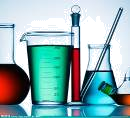题目内容

Scientists study the world and learn about things using a process called the scientific method(方法). By asking important questions and1the answers, it is possible to make amazing discoveries! Sometimes a scientist is2to answer his own questions, but if he has taken good notes another scientist may come along later who is able to use new knowledge to answer it.
When you use the scientific method to3an experiment, you start by making observations(观察) about something that4you. Based on your observations, you make a hypothesis. This is using5you know to make a smart guess about what you think could happen. Then you are ready to begin your experiment. All6your experiment you take down notes, which are7 experiment date(资料). You are constantly making observations during this time. You may make discoveries that cause you to improve your experiment as you go.8, you conclude your experiment and begin to look over your notes to decide what it all means. Based on what you have learned, you make a final statement about 9your hypothesis was correct or not. You have to have reasons and evidence to support what you are saying.
Using the scientific method can be difficult, but rewarding. Because all the steps are organized in a process, the10are more valid(可信的). When you provide observations as evidence to support what you are saying, your ideas are more likely to be accepted.
- 1.
- A.waiting for
- B.searching for
- C.worrying about
- D.complaining about
- A.
- 2.
- A.unable
- B.sure
- C.ready
- D.surprised
- A.
- 3.
- A.read
- B.refuse
- C.prevent
- D.conduct
- A.
- 4.
- A.hurts
- B.represents
- C.interests
- D.attacks
- A.
- 5.
- A.what
- B.when
- C.why
- D.which
- A.
- 6.
- A.without
- B.including
- C.except
- D.during
- A.
- 7.
- A.controlled
- B.arranged
- C.called
- D.carried
- A.
- 8.
- A.Obviously
- B.Suddenly
- C.Finally
- D.Mostly
- A.
- 9.
- A.whether
- B.what
- C.how
- D.when
- A.
- 10.
- A.problem
- B.results
- C.services
- D.aims
- A.
BADCA DCCAB
短文大意:这篇短文主要介绍了如何使用科学的方法做实验。
1.短语辨析。A. 等待;B. 寻找,探索;C.担心;D. 抱怨。联系下文,可知此处指的是探索答案。故选B。
2.联系下文描述,可知此处指的是有时一个科学家不能回答自己的问题,故选A,不能。
3.动词辨析。A.阅读;B. 拒绝;C.预防,阻止;D. 管理,处理。结合语境可知此处指的是用科学的方法来做实验。故选D。
4.动词辨析。A. 伤害;B. 代表,描绘;C.使感兴趣;D.袭击。结合语境可知此处指的是使你感兴趣的东西。故选C。
5.结合语境可知此处指的是用你知道的东西,you know 缺少逻辑宾语,故选A,什么。
6.介词辨析。Without没有;including包括;except 除了;during在期间。结合语境可知此处指的是在实验期间做笔记,故选D。
7.联系前文描述,可知这些笔记被称为实验资料。故选C,被叫做。
8.副词辨析。Obviously明显地;Suddenly突然地;Finally最后,终于;Mostly主要的,通常地。联系上下文,可知此处指的是最后,你总结你的实验。故选C。
9.结合语境可知此处指的是你的假设是否正确,联系下文or not ,可知选A,固定搭配whether or 使……还是……。
10.词义辨析。Problem问题,难题;results 成绩,结果;services服务;aims目的。联系上文,可知此处指的是实验的结果。故选B。
短文大意:这篇短文主要介绍了如何使用科学的方法做实验。
1.短语辨析。A. 等待;B. 寻找,探索;C.担心;D. 抱怨。联系下文,可知此处指的是探索答案。故选B。
2.联系下文描述,可知此处指的是有时一个科学家不能回答自己的问题,故选A,不能。
3.动词辨析。A.阅读;B. 拒绝;C.预防,阻止;D. 管理,处理。结合语境可知此处指的是用科学的方法来做实验。故选D。
4.动词辨析。A. 伤害;B. 代表,描绘;C.使感兴趣;D.袭击。结合语境可知此处指的是使你感兴趣的东西。故选C。
5.结合语境可知此处指的是用你知道的东西,you know 缺少逻辑宾语,故选A,什么。
6.介词辨析。Without没有;including包括;except 除了;during在期间。结合语境可知此处指的是在实验期间做笔记,故选D。
7.联系前文描述,可知这些笔记被称为实验资料。故选C,被叫做。
8.副词辨析。Obviously明显地;Suddenly突然地;Finally最后,终于;Mostly主要的,通常地。联系上下文,可知此处指的是最后,你总结你的实验。故选C。
9.结合语境可知此处指的是你的假设是否正确,联系下文or not ,可知选A,固定搭配whether or 使……还是……。
10.词义辨析。Problem问题,难题;results 成绩,结果;services服务;aims目的。联系上文,可知此处指的是实验的结果。故选B。

练习册系列答案
 津桥教育计算小状元系列答案
津桥教育计算小状元系列答案
相关题目
根据句意,选用方框内所给词的适当形式填空。
|
east sixty health know discuss |
1. After a ____________, both sides reached a final agreement.
2. Japan is to the ____________ part of China.
3. To live ____________, you should change your lifestyle and diets.
4. Scientists are always trying to discover the ___________ world to human beings.
5. Audrey Hepburn, who died in her __________, devoted all her life to charity.
